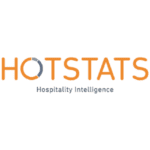 With vaccination efforts going well in many countries, and global efforts to slow transmission steadily improving, it’s now somewhat reasonable for those in the hotel industry to look ahead with optimism — but that doesn’t mean that things will go back to normal. Instead, we must anticipate some fundamental changes to how people travel.
With vaccination efforts going well in many countries, and global efforts to slow transmission steadily improving, it’s now somewhat reasonable for those in the hotel industry to look ahead with optimism — but that doesn’t mean that things will go back to normal. Instead, we must anticipate some fundamental changes to how people travel.
The days of taking spur-of-the-moment trips overseas will likely return eventually, but it’s hard to see them reappearing within the next few years at least. People are disillusioned, frustrated and confused after a brutal year of stay-at-home orders. There are some who will throw caution to the wind and try to pick up where they left off as soon as they’re allowed to, but most won’t. They’ll take baby steps, anxious to see what might happen next.
If you’re to benefit substantially from the slow resurgence of recreational travel, you need to form a solid idea of what this new wave of travel consumers will want. That means building customer profiles, imagining the types of people to whom you should be appealing. To help you up your game in 2021, here are some tips for how you can get this done.
Use tools to glean insight from social media activity
Rand Fishkin, formerly of Moz, now runs a tool called SparkToro that makes it easy to find the social media accounts followed by people interested in whatever topics you’ve identified. But it doesn’t stop there. It also yields information about websites visited, hashtags used, and podcasts listened to. (If you’re interested, I suggest checking out his appearance on Stephan Spencer’s Marketing Speak podcast from last month.)
Now, SparkToro is far from the only tool on the market that seeks to improve the process of customer research, but that strengthens the point that there’s no compelling reason to try to do it all manually. Trawling through Twitter looking for points of correlation is a job for services powered by machine learning, not for individuals.
When you carry out your research, focus on how people have responded differently to the lockdown periods. For example, you could look for the delineation from the opening: the distinction between those ready to take risks and those inclined to proceed carefully. Among people talking about travel, which ones are calling for everything to reopen right away, and which are committed to facing indefinite social distancing if that’s what’s needed?
Factor in the role of global news updates
Even when travel takes place nationally, it’s subject to major international influence. When someone is prevented from going overseas, they’ll of course become more open to going somewhere closer to home (hence the rise in staycations). Due to this, your customer research needs to be as broad as you can make it — but that’s not all.
On top of that, you need to make news a substantial consideration in your customer profiles. Alongside the usual data (brands followed, foods preferred, etc.), you should look at the news publications people follow. This isn’t about rating their political opinions, though: it’s about following the stories they’re likely to read and using them to inform your strategy.
If the segment you’re targeting gets its news from CNN, for instance (it’s top of the pack on Feedspot), you can anticipate its actions based on CNN articles. A piece expressing great positivity about the pandemic and supposing that travel restrictions will be fully lifted by October 1st (for instance) might well prompt some hasty efforts to book travel in the first weeks of October. Timing some discounted hotel packages accordingly could be hugely effective.
Concentrate on what people have been denied
At its best, life is about rich contrasts. For a simple example, food tastes so much greater when you’re extremely hungry. This is important because of what people have been denied for so long, and thinking about it will help you to build useful customer profiles. You could, for instance, think carefully about swimming enthusiasts in communities where swimming pools have been closed for many months. When they’re ready to travel again, what will they want in their hotels? Yes, you guessed it: they’ll want swimming pools.
People won’t always explicitly state what they’ve been missing, and many won’t actually know just how frustrated they’ve become during the last year. But you don’t need it to be a conscious matter. You only need to be able to form a reasoned assessment of what each prospective customer is looking for: after that, you can adjust your value proposition accordingly.














